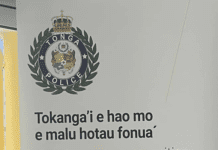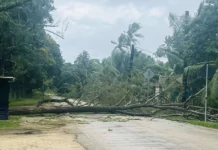U.S. President Donald Trump has stated that America will not target Iranian leadership “for now,” even as the aerial conflict between Israel and Iran continues to intensify.
The crisis, now in its fifth day, was sparked by Israel’s strike on Iranian nuclear facilities last Friday, which killed dozens of top scientists and military officials. In response, Iran and Israel have engaged in relentless retaliatory attacks, with explosions reported in Tehran today following Israeli warnings for residents to evacuate.
Meanwhile, New Zealand Foreign Affairs Minister Winston Peters confirmed that the government remains “constantly in touch” with citizens in the region and reiterated advice for them to leave immediately.
Rising death tolls and casualties continue to mount. In Israel, 24 people have been killed since hostilities began, while Iran has reported 224 fatalities.
The violence began when Israel launched a preemptive strike against Iran’s nuclear program, a move it said was necessary due to Iran’s long-standing threats to “wipe Israel off the map.”
Since then, both nations have traded blows, with missile strikes and explosions rocking Tehran and Tel Aviv. Reports indicate that a Mossad office in Tel Aviv was targeted, while an alleged high-level assassination occurred in Tehran. The situation remains volatile, with no signs of de-escalation as both sides continue their attacks.
President Trump has asserted that the U.S. now has “complete and total control of the skies over Iran,” signalling a strong military posture. His vice president, JD Vance, suggested that further action might be taken to halt Iran’s nuclear enrichment activities.
Trump’s remarks about refraining from targeting Iran’s leaders—at least for now—highlight the precarious balance between deterrence and all-out war. The U.S. stance is being closely watched, as any direct involvement could significantly alter the conflict’s trajectory.
Amid the escalating violence, New Zealand has intensified its efforts to ensure the safety of its citizens in Israel and Iran. Foreign Minister Winston Peters emphasised that the government is maintaining close contact with Kiwis in the region, urging them to depart while commercial flights remain available.
“The situation is highly unpredictable, and we strongly advise all New Zealanders to leave as soon as possible,” Peters said. The government is also monitoring the potential impact on global stability, particularly in terms of energy markets and regional security.
The conflict has already sent shockwaves through international markets, with oil prices surging amid fears of prolonged instability. The direct state-on-state hostilities between Israel and Iran mark a dangerous escalation in a region already fraught with tension.
Diplomatic efforts to mediate the crisis are underway, but with both sides deeply entrenched, the path to de-escalation remains uncertain.
The world watches anxiously as the situation develops, with the potential for broader regional consequences looming large.
As explosions continue to echo across the Middle East, the international community faces a critical test of diplomacy and crisis management.
For now, the focus remains on containing the violence and protecting civilian lives, while world leaders grapple with the challenge of preventing a wider war.







